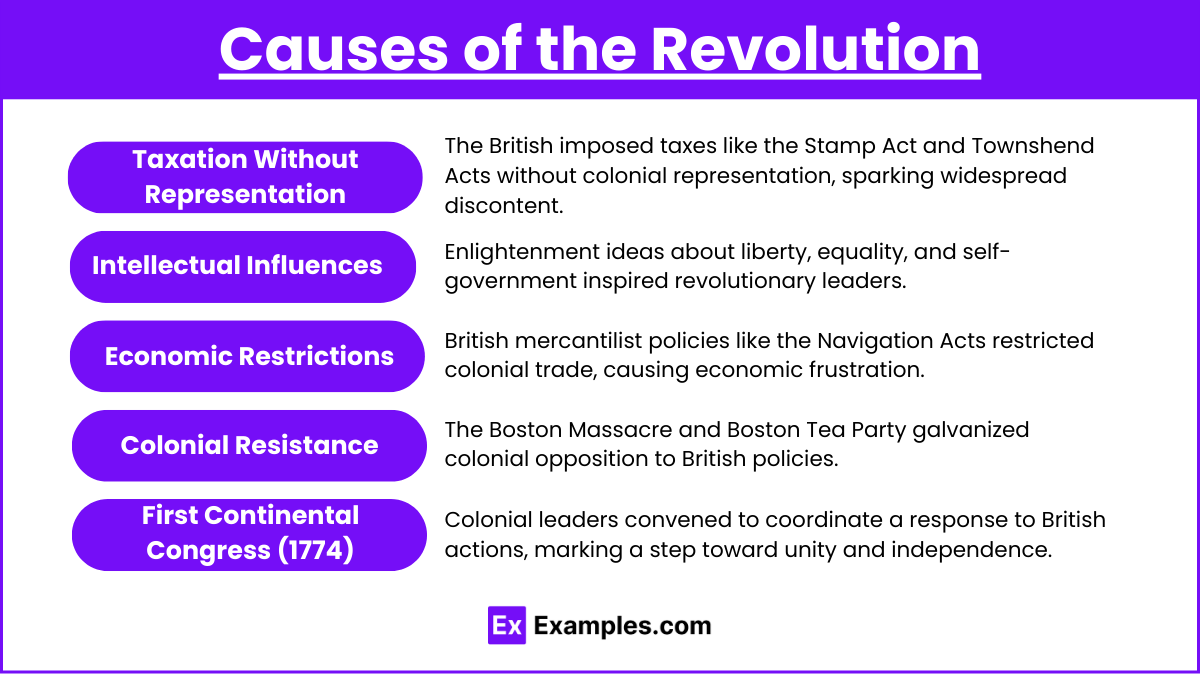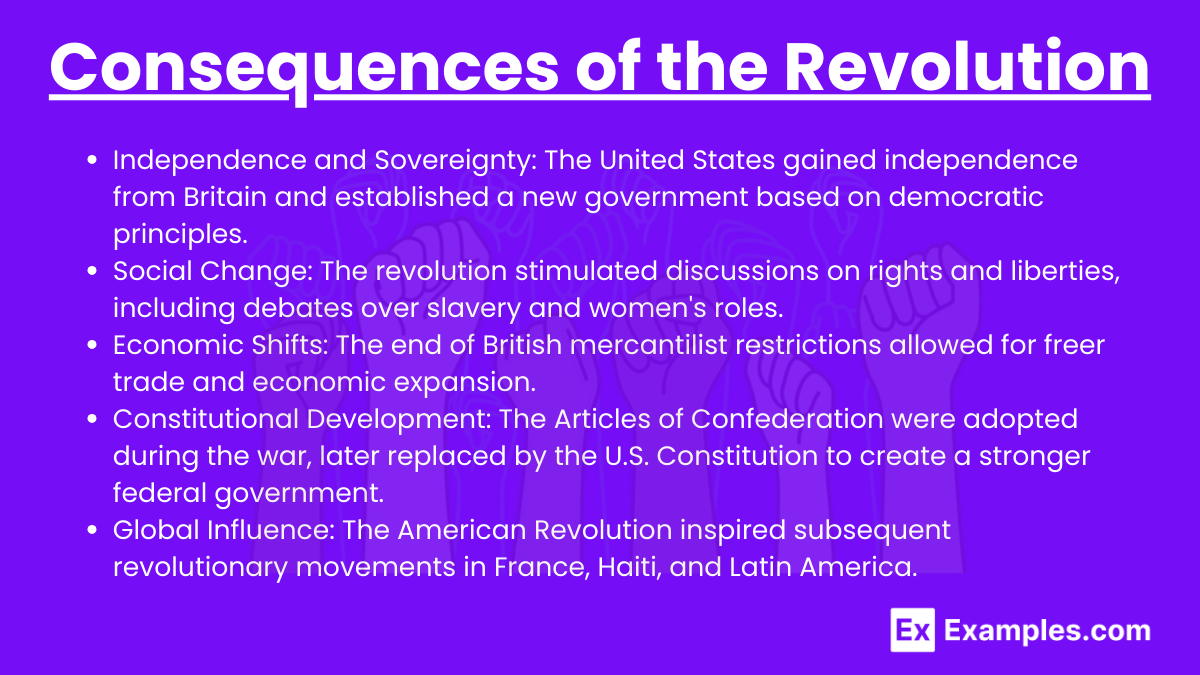In AP United States History, the American Revolution (1775–1783) stands as a pivotal event where the thirteen American colonies broke free from British rule to establish an independent nation. This transformative period was fueled by economic grievances, demands for political representation, and Enlightenment ideals. The revolution not only marked the birth of the United States but also set a precedent for democratic governance and individual liberties, significantly influencing the global landscape of the modern era.
Learning Objectives
In studying the American Revolution in AP United States History, you will be expected to understand the causes and key events of the conflict. The impact of Enlightenment ideas and the role of colonial resistance will be analyzed. The significance of major battles and the Treaty of Paris (1783) will be examined. Additionally, the social, political, and economic consequences of the revolution, including the creation of the U.S. Constitution and the shift in global perspectives on governance, will be comprehended.
Causes of the Revolution

Taxation Without Representation: The British government imposed taxes such as the Stamp Act (1765) and the Townshend Acts (1767) without colonial representation in Parliament, leading to widespread discontent.
Intellectual Influences: Enlightenment ideas about liberty, equality, and self-government inspired revolutionary leaders.
Economic Restrictions: British mercantilist policies, including the Navigation Acts, restricted colonial trade and manufacturing, causing economic frustration.
Colonial Resistance: Events like the Boston Massacre (1770) and the Boston Tea Party (1773) galvanized colonial opposition to British policies.
First Continental Congress (1774): Colonial leaders convened to coordinate a response to British actions, marking a step toward unity and independence.
Key Events

1775 – Battles of Lexington and Concord: These initial skirmishes marked the beginning of armed conflict between colonial militias and British troops.
1776 – Declaration of Independence: Drafted primarily by Thomas Jefferson, this document proclaimed the colonies’ right to self-governance and listed grievances against King George III.
1777 – Battle of Saratoga: A significant American victory that persuaded France to enter the war as an ally to the colonies.
1781 – Siege of Yorktown: The decisive victory by American and French forces over British General Cornwallis’s army, leading to the end of major military operations.
1783 – Treaty of Paris: This treaty officially ended the war and recognized the sovereignty of the United States.
Consequences of the Revolution

Independence and Sovereignty: The United States gained independence from Britain and established a new government based on democratic principles.
Social Change: The revolution stimulated discussions on rights and liberties, including debates over slavery and women’s roles.
Economic Shifts: The end of British mercantilist restrictions allowed for freer trade and economic expansion.
Constitutional Development: The Articles of Confederation were adopted during the war, later replaced by the U.S. Constitution to create a stronger federal government.
Global Influence: The American Revolution inspired subsequent revolutionary movements in France, Haiti, and Latin America.
Examples
Thomas Paine’s “Common Sense”: This influential pamphlet argued for independence and helped sway public opinion in favor of the revolutionary cause.
The Continental Army: Led by General George Washington, this unified force represented the colonies’ organized military effort against British rule.
The Sons of Liberty: A group of patriots who organized protests against British taxation and played a significant role in mobilizing colonial resistance.
Valley Forge (1777-1778): The winter encampment where Washington’s army endured harsh conditions, emerging more disciplined and unified.
The Franco-American Alliance (1778): This alliance provided crucial military support to the American cause, including troops, naval power, and supplies.
Multiple-Choice Questions (MCQs)
What was the primary purpose of the Declaration of Independence?
- A. To establish a new form of government
- B. To declare war on Britain
- C. To outline grievances against King George III and justify independence
- D. To form an alliance with France
Explanation: The Declaration of Independence detailed the colonies’ reasons for seeking independence, listing grievances against the British crown and asserting their right to self-governance.
Which battle is considered the turning point of the American Revolution?
- A. Battle of Bunker Hill
- B. Battle of Saratoga
- C. Battle of Yorktown
- D. Battle of Lexington and Concord
Explanation: The American victory at Saratoga in 1777 was pivotal as it convinced France to ally with the colonies, providing essential military support that ultimately helped secure American independence.
What was a significant consequence of the Treaty of Paris (1783)?
- A. The expansion of British territory in North America
- B. Recognition of American independence by Britain
- C. The establishment of the Articles of Confederation
- D. The end of French support for the American colonies
Explanation: The Treaty of Paris ended the American Revolution and recognized the United States as an independent nation, formally ending British rule over the colonies.


